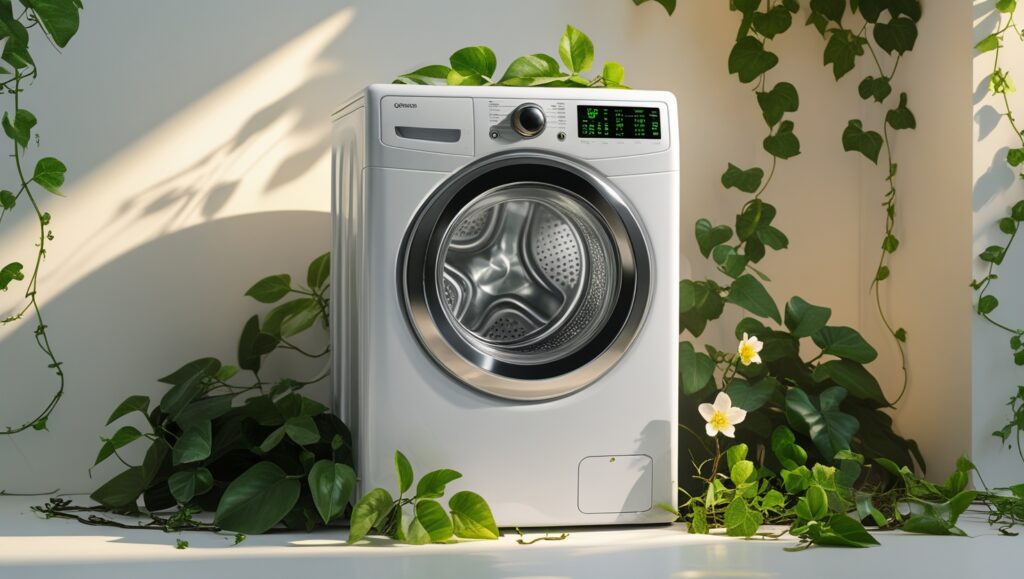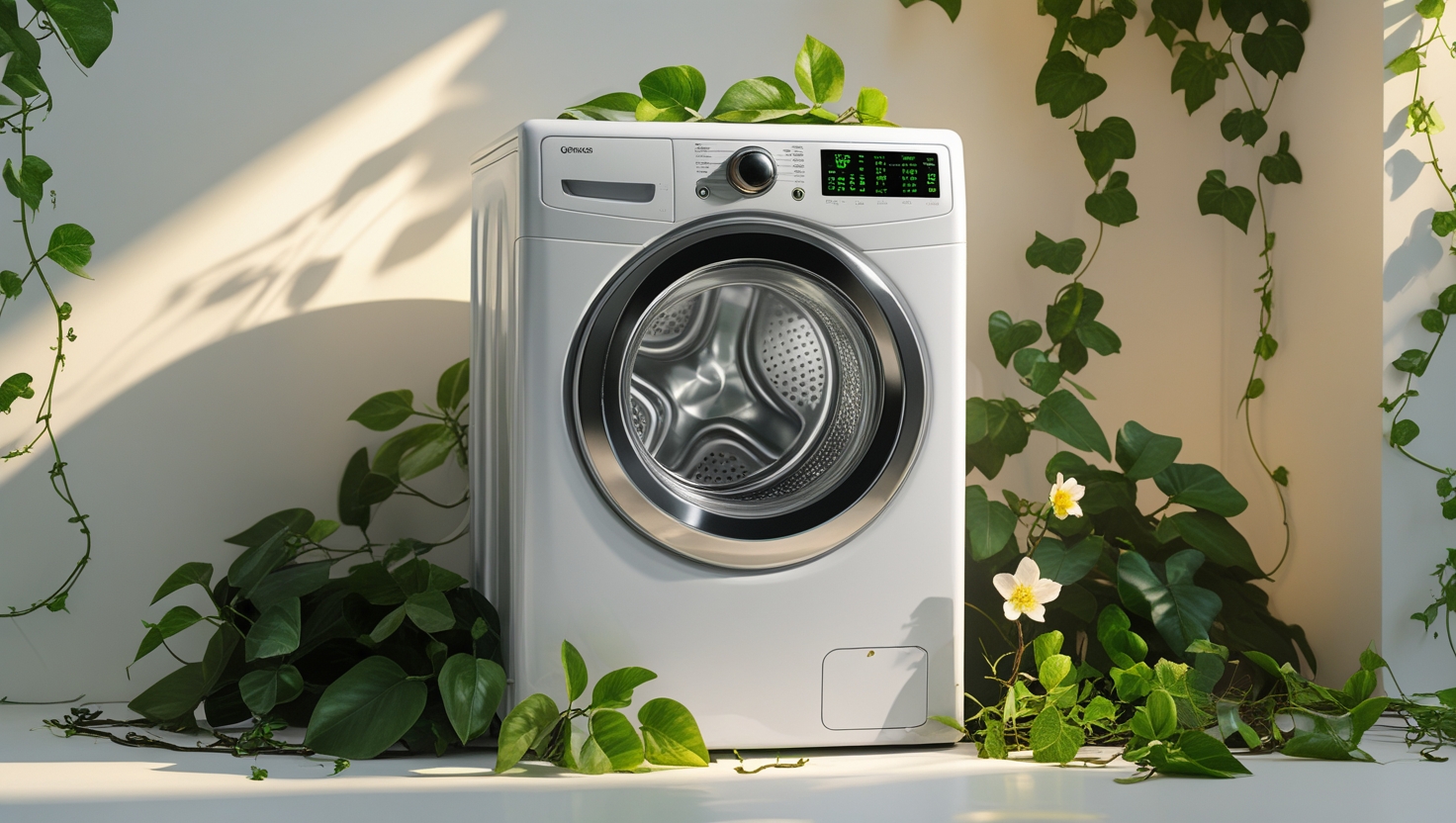Top Load Washers for Eco-Friendly Homes with Energy Efficiency
In today’s environmentally conscious world, selecting appliances that align with sustainable living is more important than ever. For eco-friendly homes, choosing a top load washer that combines energy efficiency with effective cleaning is a smart move. Not only do these washers reduce your carbon footprint, but they also lead to significant savings on utility bills.

Table of Contents
Why Energy Efficiency Matters in Top Load Washers
Energy-efficient top load washers are designed to use less water and electricity without compromising on performance. According to ENERGY STAR, certified clothes washers use about 20% less energy and 30% less water than regular washers, saving homeowners approximately $530 over the product’s lifetime . This efficiency not only benefits the environment but also reduces household expenses.
Top Energy-Efficient Top Load Washers for Eco-Friendly Homes
Here are some top load washers that combine energy efficiency with eco-friendly features:
1. LG 5.5 cu. ft. Mega Capacity Smart Top Load Washer (Model WT8600CB)
- Features:
- ENERGY STAR certified.
- TurboWash3D™ technology for faster, more efficient cleaning.
- SmartThinQ® app compatibility for remote operation.
- Why It’s Great: Offers a large capacity and advanced features while maintaining energy efficiency .
2. Samsung 5.4 cu. ft. Smart Top Load Washer with Super Speed Wash (Model WA54CG7150AD)
- Features:
- ENERGY STAR certified.
- Super Speed Wash for quick cycles.
- SmartThings app compatibility for remote monitoring.
- Why It’s Great: Combines large capacity with smart features, making it ideal for eco-conscious households
3. GE 4.6 cu. ft. High-Efficiency Top Load Washer with Stain PreTreat (Model GTW538ASWWS)
- Features:
- ENERGY STAR certified.
- Stain PreTreat feature for targeted cleaning.
- Deep Fill option for larger loads.
- Why It’s Great: Offers specialized features to tackle tough stains while conserving energy and water .
Tips for Maximizing Energy Efficiency
- Use Cold Water: Washing with cold water can significantly reduce energy consumption, as heating water accounts for a large portion of energy use in laundry.
- Run Full Loads: Maximize efficiency by only running the washer with full loads, reducing the number of cycles needed.
- Regular Maintenance: Keep your washer in top condition by cleaning it regularly and checking for any issues that might affect performance.
Final Thoughts
Choosing an energy-efficient top load washer is a practical step toward creating a more sustainable home. The models highlighted above offer a blend of performance, capacity, and eco-friendly features that cater to the needs of environmentally conscious homeowners. By investing in these appliances, you’re not only reducing your environmental impact but also enjoying long-term savings.
I’ve personally made the switch to energy-efficient appliances, and the impact on my utility bills was almost immediate. One of the smartest upgrades I made was choosing a top load washer with an ENERGY STAR rating — it just made sense for both my wallet and the planet.
Top load washers have come a long way in the last decade. What used to be water-guzzling machines are now designed with low-water sensors, precise load detection, and smarter rinse cycles that reduce waste without sacrificing cleanliness.
I recommend washers with high-speed spin cycles, which remove more water from clothes, meaning less time in the dryer. That alone can save tons of energy every week — especially if you’re doing laundry for a family.
One underrated feature in eco-friendly washers is the auto-adjust water level. These machines detect the load size and adjust water usage accordingly. No more gallons wasted on half-loads — it’s efficient, smart, and good stewardship of resources.
Many energy-efficient top load washers also have fast wash cycles, which is great if you’re trying to cut down on time and electricity. A shorter cycle means your machine is working less — and drawing less power.
And let’s not forget about detergent efficiency. These washers are optimized for high-efficiency (HE) detergent, which produces fewer suds and rinses out faster. That leads to less residue in your clothes and less water used per load.
I also love that many of these washers are designed with longer lifespans, thanks to inverter motors and fewer moving parts. It means fewer breakdowns, less waste in landfills, and a better return on investment over time.
For homes running on solar energy or using off-peak electricity plans, a smart top load washer with delay start settings is a perfect match. You can time your loads for low-demand hours and make the most of your green energy setup.
The material of the drum also plays a role in efficiency. I always go with stainless steel — not just because it’s durable, but also because it reduces friction on clothes, helping the washer move more efficiently with less resistance.
I’ve even seen some models with eco modes that use lower spin speeds or less heat — perfect for delicates or light loads that don’t need a full-power wash. It’s a great way to stay energy-conscious without compromising on care.
Another tip: always check if your washer has a water factor (WF) and modified energy factor (MEF) rating. These numbers show how much water and energy the washer uses per cycle. The higher the MEF and the lower the WF, the better.
Finally, switching to an energy-efficient washer doesn’t just benefit your own household. When more people choose eco-friendly appliances, it reduces demand on water treatment facilities and power grids. It’s a small but meaningful way to contribute to a healthier planet.
I’ve also found that when you combine your eco-efficient top load washer with a clothesline or drying rack for certain loads, you double your energy savings. Air drying is free, gentle on fabrics, and aligns perfectly with a green lifestyle.
If you’re remodeling or building a new eco-conscious home, placing your laundry area near a window or ventilation system can help reduce humidity and improve air quality — especially when using energy-efficient machines that don’t overheat your space.
And finally, choosing an eco-friendly washer sends a strong message. It shows you’re committed to long-term savings, sustainability, and smart living — all while keeping your clothes fresh, clean, and handled with care.

